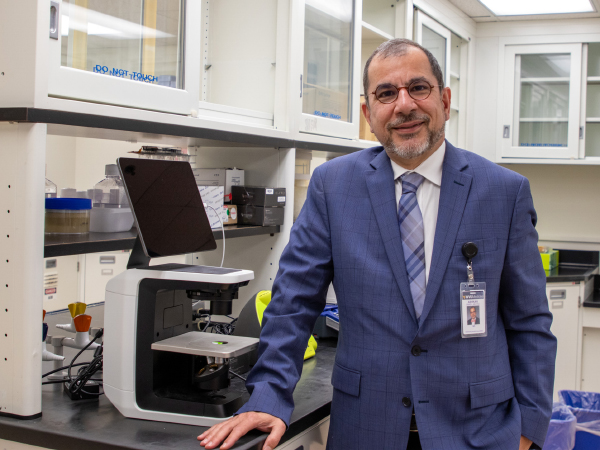Data from the IMROZ phase III trial demonstrated Sarclisa (isatuximab), in combination with standard-of-care bortezomib, lenalidomide, and dexamethasone (VRd) followed by Sarclisa-Rd (the IMROZ regimen), significantly reduced the risk of disease progression or death by 40%, compared to VRd followed by Rd in patients with newly-diagnosed multiple myeloma not eligible for transplant.
Sarclisa is sponsored by Sanofi.
IMROZ is the first global phase III study of an anti-CD38 monoclonal antibody in combination with standard-of-care VRd to significantly improve PFS and show deep responses in this patient population who often have poor prognoses. The results were shared in an oral presentation at the American Society of Clinical Oncology annual meeting and simultaneously published in the New England Journal of Medicine.
The use of Sarclisa in combination with VRd in transplant-ineligible NDMM is investigational and has not been fully evaluated by any regulatory authority.
“The significant progression-free survival benefit observed with Sarclisa combination therapy compared to VRd is important and encouraging for patients with newly diagnosed multiple myeloma,” Thierry Facon, professor of hematology in the Department of Hematology, Lille University Hospital, member of French Academy of Medicine, and IMROZ principal investigator, said in a statement. “Effective frontline therapy has the potential to modify the course of the disease, which is a key outcome for transplant-ineligible patients who often face high rates of attrition in later lines of therapy. The IMROZ results demonstrate the promise of Sarclisa as a backbone to frontline therapy, which may improve long-term outcomes for this incurable disease.”
IMROZ is a global, randomized, multi-center, open-label study. At the data cut-off of Sept. 26, 2023, through the median follow-up of 59.7 months, the following were observed for Sarclisa-VRd compared to VRd:
Primary endpoint:
- 40% reduction in the risk of disease progression or death for patients treated with Sarclisa-VRd versus VRd (HR 0.596; 98.5% CI: 0.406 to 0.876; p=0.0005). At the median follow-up of 59.7 months, the median PFS with the Sarclisa-VRd combination was not reached versus 54.3 months with VRd.
- The estimated PFS at 60 months was 63.2% for patients treated with Sarclisa-VRd versus 45.2% for VRd.
Secondary endpoints:
- Approximately three-quarters (74.7%) of patients treated with Sarclisa-VRd achieved a complete response compared to 64.1% of patients taking VRd (OR 1.7; 95% CI: 1.097-2.5; p=0.008).
- More than half (55.5%) of patients treated with Sarclisa-VRd achieved MRD negative CR compared to 40.9% of patients taking VRd (OR 1.8; 95% CI: 1.229-2.646; p=0.0013).
- MRD was sustained for at least 12 months among nearly half (46.8%) of patients in the Sarclisa-VRd arm compared to less than one-quarter (24.3%) of patients taking VRd (OR 2.7; 95% CI: 1.799-4.141).
At the date of data cut-off, 47.2% of patients (125/263) treated with Sarclisa-VRd and 24.3% of patients (44/181) treated with VRd were still on treatment. The median treatment duration for the Sarclisa-VRd combination was 53.2 months vs. 31.3 months for VRd.
The safety and tolerability of Sarclisa observed in this study was consistent with the established safety profile of Sarclisa-VRd with no new safety signals observed. Grade ≥3 treatment-emergent adverse events occurred in 91.6% of patients taking Sarclisa-VRd and 84% of patients taking VRd. Treatment-emergent events of any grade led to treatment discontinuation in 22.8% of patients taking Sarclisa-VRd and 26% of patients taking VRd.







